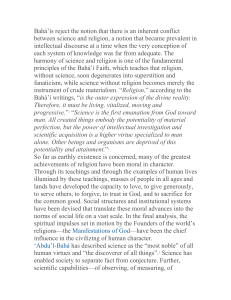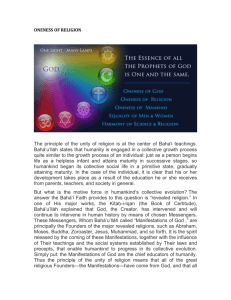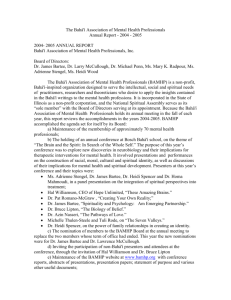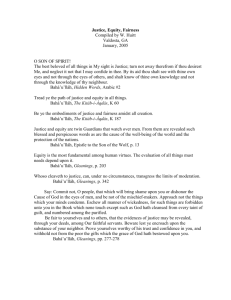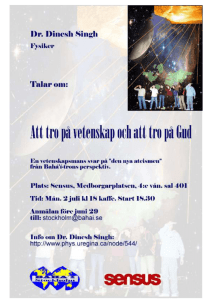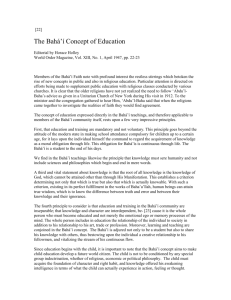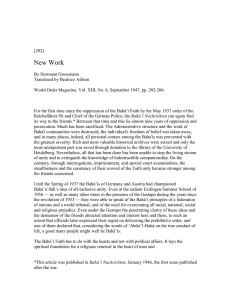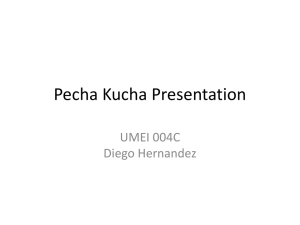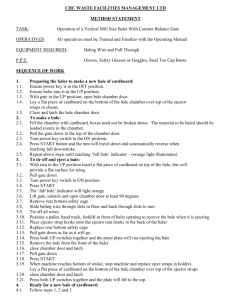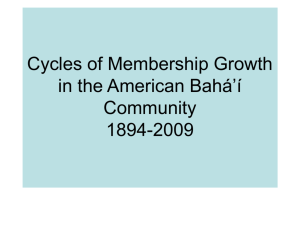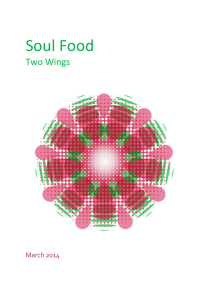Bahai - Amitabha Hospice
advertisement
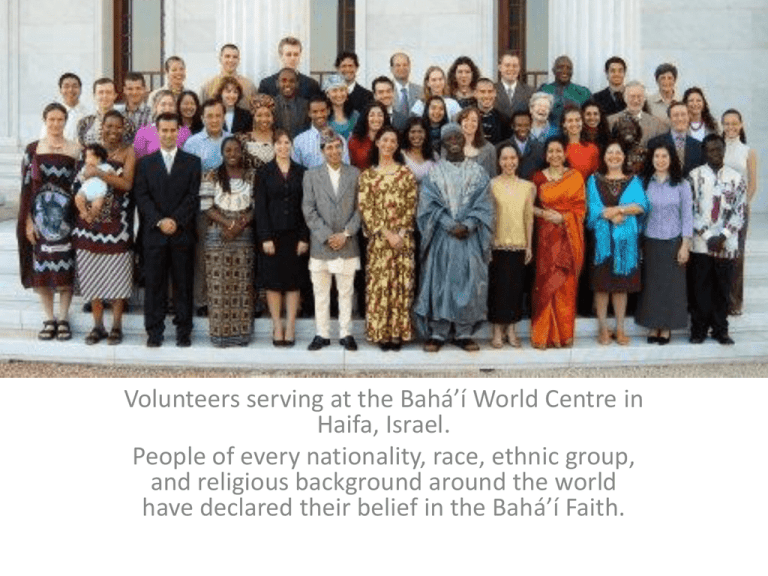
Volunteers serving at the Bahá’í World Centre in Haifa, Israel. People of every nationality, race, ethnic group, and religious background around the world have declared their belief in the Bahá’í Faith. • Whether at the local, regional, national, or international level, Bahá’í elections follow a similar process that seeks to choose spiritually minded leaders from the entire body of believers in the area. Shown here is a Bahá’í election in process in Panama. Baha'is and their friends in Solano, north of Manila in the Philippines, pose for a photograph at a gathering in 2007 at the local Baha'i centre. O SON OF SPIRIT! My first counsel is this: Possess a pure, kindly and radiant heart, that thine may be a sovereignty ancient, imperishable and everlasting. - Bahá’u’lláh O SON OF BEING! If thine heart be set upon this eternal, imperishable dominion, and this ancient, everlasting life, forsake this mortal and fleeting sovereignty. - Bahá’u’lláh The eldest son of Bahá’u’lláh, ‘Abdu’l-Bahá was appointed by his Father to lead the Bahá’í Faith after His passing. Known as “the Master,” ‘Abdu’l-Bahá played a crucial role in ensuring that the Bahá’í Faith would not fragment into different sects. Virtues are the essence of the human spirit and the content of our character acceptance caring cleanliness commitment compassion confidence consideration contentment cooperation courage courtesy creativity detachment determination devotion diligence discernment enthusiasm excellence faith flexibility forgiveness friendliness generosity gentleness grace gratitude honesty humility idealism integrity joyfulness justice kindness love loyalty moderation orderliness patience peacefulness perseverance prayerfulness purity purposefulness reliability respect responsibility reverence righteousness sacrifice self-discipline service steadfastness tactfulness thankfulness tolerance trust trustworthiness truthfulness unity wisdom wonder etc One common activity in Bahá’í communities is moral and spiritual education classes for children. Shown here is a children’s class in Phnom Penh, Cambodia. A 2002 tutor training for the Ruhi Institute in New Zealand. A 2002 tutor training for the Ruhi Institute in New Zealand. Bahá’í devotional meeting in Canada. Bahá’í devotional meeting in Canada "A place of visitation”...At a graveside in Sofia, Bulgaria, Baha'is pray for the progress of the soul of the departed one. Burial Laws in the Bahá’í Faith(1) • The body must not be embalmed • No cremation • The body is the “Temple of the Soul” and therefore it is treated with dignity and respect. • The body is washed with great care, and often wrapped in cotton or silk • The body is placed in a coffin, usually of hardwood. Burial Laws in the Bahá’í Faith(2) • A ring is usually placed on the finger with the inscription: “I came from God and return unto Him, detached from all save Him, holding fast to His Name, the Merciful, the Compassionate.” • The deceased person is not transported more than one hour’s travelling distance from the place of death. • The body is interred with radiance and serenity in a nearby place. • There is only one obligatory prayer for the departed, which is recited by one individual on behalf of all present prior to the interment. The soul is a sign of God: it is linked to the body but not part of it. God has bestowed on man the capacity to reflect all His names and attributes. Through spiritual education, the treasures hidden within us can be revealed. The soul returns to God to continue its spiritual journey after physical life ends. In the next world, the holy souls become acquainted with all the spiritual mysteries and behold the beauty of God. In the next world, we will recognize our loved ones and enjoy companionship, and we will remember the life we had in this material world.
